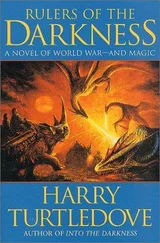Harry Turtledove - Over the Wine-Dark Sea
Здесь есть возможность читать онлайн «Harry Turtledove - Over the Wine-Dark Sea» весь текст электронной книги совершенно бесплатно (целиком полную версию без сокращений). В некоторых случаях можно слушать аудио, скачать через торрент в формате fb2 и присутствует краткое содержание. Жанр: Книги. Описание произведения, (предисловие) а так же отзывы посетителей доступны на портале библиотеки ЛибКат.
- Название:Over the Wine-Dark Sea
- Автор:
- Жанр:
- Год:неизвестен
- ISBN:нет данных
- Рейтинг книги:5 / 5. Голосов: 1
-
Избранное:Добавить в избранное
- Отзывы:
-
Ваша оценка:
- 100
- 1
- 2
- 3
- 4
- 5
Over the Wine-Dark Sea: краткое содержание, описание и аннотация
Предлагаем к чтению аннотацию, описание, краткое содержание или предисловие (зависит от того, что написал сам автор книги «Over the Wine-Dark Sea»). Если вы не нашли необходимую информацию о книге — напишите в комментариях, мы постараемся отыскать её.
Over the Wine-Dark Sea — читать онлайн бесплатно полную книгу (весь текст) целиком
Ниже представлен текст книги, разбитый по страницам. Система сохранения места последней прочитанной страницы, позволяет с удобством читать онлайн бесплатно книгу «Over the Wine-Dark Sea», без необходимости каждый раз заново искать на чём Вы остановились. Поставьте закладку, и сможете в любой момент перейти на страницу, на которой закончили чтение.
Интервал:
Закладка:
"We'll be careful," Menedemos assured him. The local didn't seem convinced. But he also didn't seem much interested in what happened to a ship full of strangers. With a shrug, he rowed back toward Panormos.
"Well, well," Diokles said. "Isn't that interesting?"
"Interesting, yes." Sostratos did his best to sound as detached as the oarmaster. "It's not as if we didn't know there would be pirates along the way. And we haven't run into this ship yet, whosever it may be."
"If the gods be kind, we won't, either." Diokles rubbed the ring with the image of Herakles Alexikakos. But then a scowl darkened his weathered face. "Of course, if these pirates plunder ships bound for Delos, they don't fear gods or men. Too much of that these days, if anyone cares what I think. Back before so many men called themselves philosophers, most folks respected the gods. They didn't go around stealing from them."
Sostratos bristled at that. He was about to launch into a spirited defense of philosophy and philosophers when Menedemos called, "Raise the anchors! Lower the sail! Let's be away - and everybody keep a sharp eye out for pirates, because there's supposed to be one in the neighborhood."
"I wonder how many of your rowers brought swords aboard," Sostratos said to Diokles.
"There'll be some - don't know how many myself, not offhand," the keleustes said. "Everyone'll have a knife. Belaying pins . . . Did your cousin bring his bow?"
"I don't know," Sostratos answered. "I'm sorry."
Diokles made unhappy clucking noises. "We ought to have at least one aboard. That way, nobody can start shooting at us without us shooting back." He rubbed the ring again. "Maybe I'm worrying about the reflection of a bone, like the dog in the fable. The sea is a big place. Maybe we won't have to worry about these pirates at all. I hope we don't."
As the Aphrodite pulled away from Panormos, Sostratos asked Menedemos, "Do you have your bow? The keleustes is worried about it." He was worried about it, too, but didn't care to admit that to his cousin. Menedemos too often made him pay when he showed anything that looked like weakness.
"I've got it," Menedemos answered. "I hope it's not the only one aboard. What I wish we had is a dart-thrower at the bow, like the ones Ptolemaios and Antigonos' fives carry. That would make a pirate ship sit up and take notice." He sighed. "Of course, we've got nowhere to put it, especially not with the peafowl all over the foredeck, and it'd be heavy enough to ruin the ship's trim. But I still wouldn't mind carrying one, not at times like this."
The Aphrodite sailed through the channel between Mykonos and Tenos, the larger island to the northwest. Delos, which seemed hardly more than a speck of land, lay to port after the akatos cleared Mykonos. The polis of Delos stood on the island's west side. The white stone of the temples gleamed dazzlingly under a warm spring sun.
Several boats went back and forth between Delos and Rheneia; the channel separating the two islands couldn't have been more than four stadia wide. "I wonder who's dying," Sostratos murmured.
"What's that?" Menedemos said.
"I wonder who's dying," Sostratos repeated. "Delos is sacred ground, you know - too sacred to be polluted by death. If somebody's in a bad way there, they take him across the channel to Rheneia to finish the job. They do the same for women in childbirth, too."
"Childbirth's just about as bad as dying when it comes to pollution," Diokles said.
Menedemos dipped his head. "Women's things are a strange business. I thank the gods every day for making me a man." Neither Sostratos nor the oarmaster disagreed with him.
A tubby sailing ship approaching Delos from the northwest sheered off sharply when her crew spied the long, lean shape of the Aphrodite. Diokles grunted laughter. "If we were pirates, we'd have them for supper," he said.
Sostratos' cousin steered the merchant galley south past Rheneia's western coast, which held a town even smaller and less prepossessing than Mykonos' Panormos. Menedemos clicked his tongue between his teeth. "Poor Rheneia," he said, "always running second behind its little neighbor. That must be hard."
You wouldn't know, would you? Sostratos thought. He almost said it out loud, but ended up keeping quiet. What was the use? Menedemos might not even realize what he was talking about.
Far to the south, beyond Rheneia, clouds swirled above Paros, twisting into all sorts of improbable patterns. Sostratos merely admired their beauty. To Diokles, the view of the island helped define the Aphrodite's route. "One nice thing about the Kyklades," the keleustes said. "There's always an island or two on the horizon somewhere, so you can figure out where you are."
"It's a lot easier than navigating out of sight of land," Menedemos agreed.
He had lynx-eyed Aristeidas at the bow as a lookout, but it was one of the sailors one the starboard side who sang out, "Sail ho!" and pointed west.
As Sostratos had when Aristeidas sighted Mykonos, he peered in the direction in which the sailor pointed. This time, he scratched his head and said, "I don't see anything."
"It's there," the man insisted. After a moment, a couple of other sailors added loud - and alarmed - agreement. Sostratos kept peering. He knuckled his eyes, for he kept on seeing nothing.
From the poop, Menedemos shouted, "All men to the oars! Diokles, give us a lively beat. We'll see if we can't show the polluted robbers our heels."
Sailors rushed to their benches. A couple of them trod on Sostratos' toes as they hurried past. He cursed, not from pain but from frustration: he still couldn't see the sail that had everyone else jumping like chickpeas on a hot griddle. He rubbed his eyes again. People said reading could make you shortsighted. Sostratos had never believed that. His vision, if not of the very best like Aristeidas', had always been good enough. Now he began to wonder.
And then, just as the Aphrodite, propelled now by sail and oars, seemed to gather herself and leap forward over the wine-dark water of the Aegean, he did spy the sail and understood at once why he hadn't seen it earlier. He'd been looking for a white square of linen against the blue sky. This sail, though, was blue itself, making it harder to see at any distance.
Now he pointed."There's the pirate," he called back to Menedemos.
"There's a pirate, anyhow," his cousin agreed. "Whether that's the pirate or not, the one the fellow on Mykonos talked about, I don't know and I don't care. But no honest skipper makes his sail into a chameleon."
"Not just his sail." Now that Sostratos knew where to look, he had much less trouble spying the other ship. "His hull's painted the color of the sea, too."
"If you're going to do those things, you don't usually do them by halves," Menedemos said. He turned to Diokles. "Up the stroke, keleustes. They're gaining on us."
"Skipper, we can't row any harder than what we're doing," the oarmaster answered. "In fact, we won't be able to hold this sprint very long."
Menedemos cursed. So did Sostratos, all over again. Sure enough, the pirate ship was visibly bigger than when he'd first spotted it. As did those of the Aphrodite, its oars rose and fell, rose and fell, in smooth rhythm, digging into the water and then breaking free once more. The pirates were stroking no more rapidly than the Aphrodite's crew, but they had a faster ship: they didn't have to worry about hauling cargo, only fighting men.
It hardly seemed fair, Sostratos thought as he counted the oars on the pirate's port side, which he could see better than the starboard as her captain steered on a course that converged with the Aphrodite's. He counted the oars, muttered to himself, and then counted them again. "Menedemos!" he called, his voice rising nearly to a shout. "Menedemos!"
Читать дальшеИнтервал:
Закладка:
Похожие книги на «Over the Wine-Dark Sea»
Представляем Вашему вниманию похожие книги на «Over the Wine-Dark Sea» списком для выбора. Мы отобрали схожую по названию и смыслу литературу в надежде предоставить читателям больше вариантов отыскать новые, интересные, ещё непрочитанные произведения.
Обсуждение, отзывы о книге «Over the Wine-Dark Sea» и просто собственные мнения читателей. Оставьте ваши комментарии, напишите, что Вы думаете о произведении, его смысле или главных героях. Укажите что конкретно понравилось, а что нет, и почему Вы так считаете.












